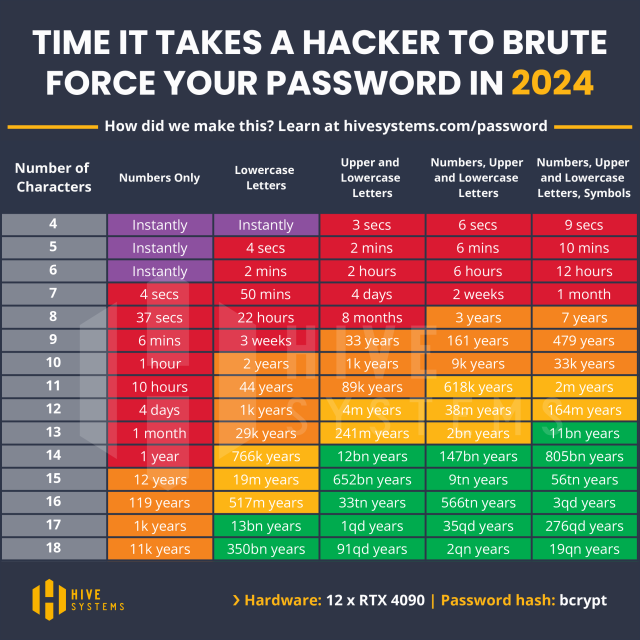🥳 NIST is making updates to their #password standards:
pages.nist.gov/800-63-4/sp800-…
Goodbye unnecessary rotations & hello longer maximum password length! (Fun fact: Tuta has no password length limits 😎)
What do you think of these changes? How do you create your passwords securely?

Ténno Seremél’
in reply to Tuta • • •enoch_exe_inc
in reply to Tuta • • •Tuta
in reply to enoch_exe_inc • • •Tuta
Unknown parent • • •rockpick
in reply to Tuta • • •Tuta
in reply to rockpick • • •Tim Ward ⭐🇪🇺🔶 #FBPE
in reply to Tuta • • •Ah, long passwords.
My WiFi system has a 40 character password.
Which works fine with everything except one particular IoT device, which says "password too long" and refuses to operate. Tech support just said "use a shorter password". Despite most of the interweb saying that it can be up to 63 characters.
a Witty Name
in reply to Tuta • • •Elatan
in reply to Tuta • • •cube
in reply to Tuta • • •SomeGadgetGuy
in reply to Tuta • • •Cluster Fcku
in reply to Tuta • • •Cognitive Dissidence
in reply to Tuta • • •I use a phrase from a book, preferably one that's not too popular, then add some creative misspellings. For a hint, I can just use the book's title.
Things that I have never used in a password:
- DOB or anniversary of myself or family members
- Pet's name, current or past
- Home Town
- Any dictionary word (unless obfuscated by multiple misspellings)
What am I forgetting?
Johns
in reply to Tuta • • •Using a variation of: "day" "month", " year" and a symbol [$, !,?,@,€,&]
And since I use three languages that's three ways of spelling the month.
So if I changed it today it could be:
September25!2024@
Or
!25Setembre-2024?
Not the strongest but strong enough and easy to remember
mangymagi:~#
in reply to Tuta • • •meneer
in reply to Tuta • • •Tuta
in reply to meneer • • •meneer
in reply to Tuta • • •Passwords .. We only see passwords copied or shared (via phishing), not broken by cracking, that takes too much effort anyway. I can't recall password incidents because of brute force attacks, except for stupid breaches of websites, when a password file without decent encryption and a salt is used (like LinkedIn ages ago).
mmphosis
in reply to Tuta • • •BoBwalker
in reply to Tuta • • •zoe
in reply to Tuta • • •taivlam
in reply to Tuta • • •